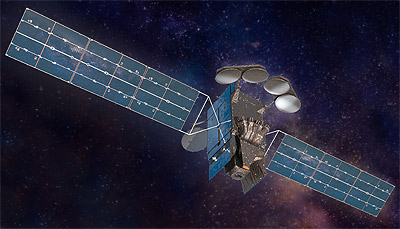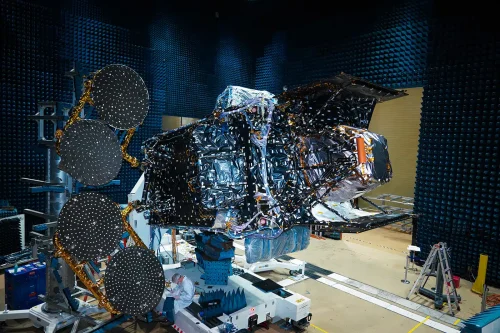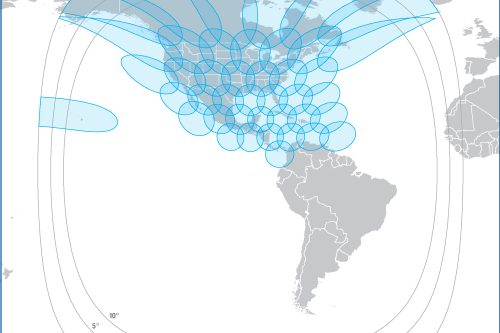
Back to selection
Earth Station Antenna C-band needed? Check out our 31 new and used items.
Earth Station Antenna Ka-band needed? Check out our 24 new and used items.
Earth Station Antenna Ku-band needed? Check out our 35 new and used items.
GEO Satellite
Intelsat-40e/TEMPO (IS-40e) GEO
succesfull
Launch date
7 April 2023
Country

Purpose
Communication
Position
91° West
Manufacturer
Operator
Launch operator
Launch vehicle
Falcon 9
Expected lifetime
21+ Years

Regions
North America Region
South America Region
The Intelsat-40e/TEMPO (IS-40e/TEMPO) at 91° West is operated by Intelsat and was ordered in February 2020 with Space Systems/Loral (SS/L) (MAXAR Technologies). The satellite will provide Intelsat customers across North and Central America with flexible, high-throughput, “coast-to-coast” coverage. The satellite is built on the SSL-1300 platform and carries a high throughput C-, Ku, and Ka-band payload for Intelsat’s Epic system. The satellite will use both electric and chemical propulsion for orbit raising and will be operated with all-electric propulsion on orbit for a lifespan of 21+ years (!).
Additionally, the satellite hosts NASA’s TEMPO (Tropospheric Emissions: Monitoring of Pollution) earth observation payload. TEMPO is a UV-visible spectrometer that will detect pollutants by measuring sunlight reflected and scattered from the Earth’s surface and atmosphere. The resulting data from TEMPO will be used to enhance air-quality forecasts in North America, enabling the more effective early public warning of pollution incidents.
TEMPO is the second of a three-instrument constellation designed to monitor air pollution on an hourly basis. The first, the Geostationary Environment Monitoring Spectrometer (GEMS) is a sister instrument to TEMPO and is mounted onto the Korean Aerospace Research Institute GEO-KOMPSAT-2B satellite which was launched on an Ariane 5 rocket in February 2020 and allows measurements to be taken over Asia. The final instrument of the constellation will be mounted onto the Sentinel-4 satellite. It is currently expected to be launched in 2024 and will provide coverage to Europe and Northern Africa.
Intelsat-40e at 91° West was launched on April 7th 2023 on a Falcon 9 rocket operated by SpaceX from the Space Launch Complex 40 (SLC-40) at the Cape Canaveral Space Force Station (CCSFS) in Florida, USA.
GEO Satellite
Intelsat-40e/TEMPO (IS-40e)
succesfull


